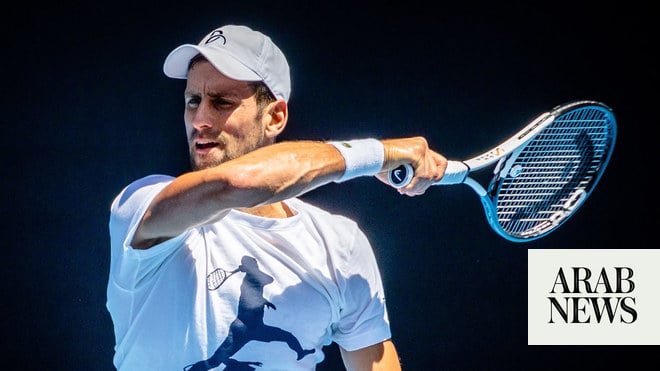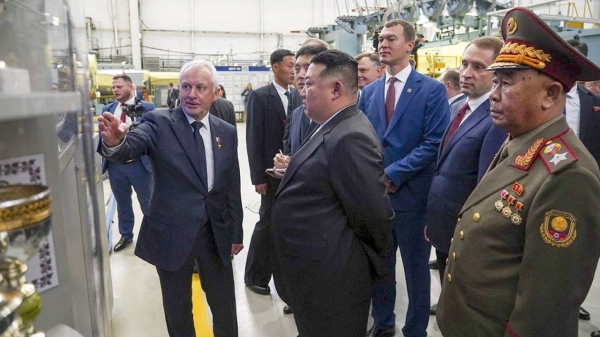
Vladimir Putin has arrived in North Korea for a summit with Kim Jong-un, amid US warnings against any agreement that could add to military pressure on Ukraine and raise tensions on the Korean peninsula.
Making his first visit to the reclusive country since 2000, the Russian president flew to Pyongyang early on Wednesday to be greeted by huge welcome banners and Russian flags. Russian state media said his plane touched down in Pyongyang at about 2.45am local time after a stopover in Russia’s far east.
Putin is scheduled to meet Kim later on Wednesday, when they will sign agreements designed to deepen a relationship that has strengthened significantly since Russia’s February 2022 invasion of Ukraine.
Kim, who met Putin in Vladivostok during a week-long visit to Russia last September, is one of the few world leaders to have voiced unequivocal support for the war, while Putin has described the pair as “comrades-in-arms” against western attempts to isolate them through sanctions.
The US and South Korea say they have evidence that North Korea has supplied dozens of ballistic missiles and more than 11,000 containers of munitions to Russia for use in Ukraine, while Kim is understood to have sought Russian food and energy aid, and help with his country’s space programme.
Both countries have denied striking an arms deal during their summit nine months ago, but on the eve of his reciprocal visit Putin thanked Kim’s government for its support.
“We highly appreciate that [North Korea] is firmly supporting the special military operations of Russia being conducted in Ukraine,” Putin wrote in an article published in the Rodong Sinmun, the newspaper of the ruling Workers’ party, on Tuesday.
The Russian leader also commended Kim for defying UN security council sanctions – measures that were supported by Moscow until recently – targeting his regime’s nuclear ambitions.
Pyongyang had defended its interests “very effectively, despite the US economic pressure, provocation, blackmail and military threats that have lasted for decades”, Putin wrote.
He added: “We will develop alternative mechanisms of trade and mutual settlements that are not controlled by the west, and jointly resist illegitimate unilateral restrictions. And at the same time we will build an architecture of equal and indivisible security in Eurasia.”
North Korea’s state KCNA news agency said Putin’s visit proved that ties between the two countries “are getting stronger day by day” and would lend “fresh vitality to the development of the good-neighbourly cooperative relations between the two countries”.
The US voiced concern that the visit could have security implications for Ukraine and the Korean peninsula, which has been shaken in recent days by friction along the heavily armed border that has separated North from South since the end of the 1950-53 Korean war.
“We know North Korean ballistic missiles are still being used to hit Ukrainian targets (and) there could be some reciprocity here that could affect security on the Korean peninsula,” the US national security council spokesperson, John Kirby, told reporters.
Nato’s secretary general, Jens Stoltenberg, said Putin’s trip showed he was “dependent” on authoritarian leaders. “Their closest friends and the biggest supporters of the Russian war effort – war of aggression – [are] North Korea, Iran and China,” he said.
The Russian delegation to Pyongyang reportedly includes the defence minister, Andrei Belousov; the foreign minister, Sergei Lavrov; the heads of the Russian space agency and its railways, and Putin’s point man for energy, the deputy prime minister, Alexander Novak.
No details of Putin’s itinerary have been released by his North Korean hosts, but the visit will include one-on-one discussions between Putin and Kim, as well as a gala concert, state reception, honour guards, document signings and a statement to the media, according to Russia’s Interfax news agency.
North Korea also appears to have been preparing for a possible military parade in Pyongyang, commercial satellite imagery showed.
Yuri Ushakov, a Kremlin aide, said the two leaders would possibly sign a “comprehensive strategic partnership treaty” to outline cooperation on “security issues”.
North Korea could promise “to provide Russia with continuing supplies of artillery, guided rockets for multiple rocket launchers, and short-range missiles to support Russia’s operations in Ukraine”, Bruce Bennett, a senior defence analyst at RAND Corporation, told South Korea’s Yonhap news agency.
In return, Bennett added, North Korea will want “Russia to provide a variety of advanced technologies” and “a substantial flow of Russian oil and food products, along with hard currency payments”.












